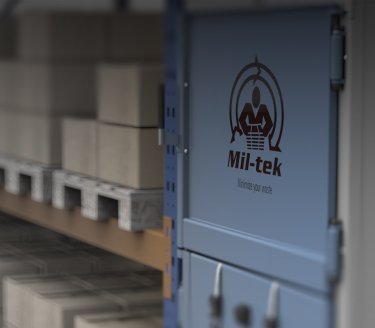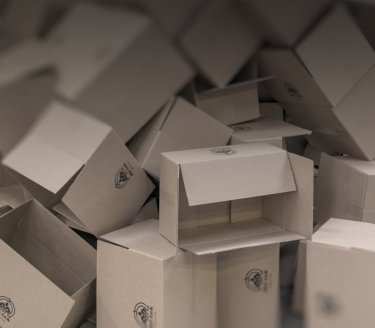Hospitals, not just clinical and contaminated waste
Hospital waste management is a serious problem that needs to be addressed. Hospital waste management goes beyond simple environmental considerations to include caring for both people and the environment.
Hospital waste is a significant issue for sustainability and the environment. Medical waste is the second-largest contributor to carbon emissions after the food industry, with 7% of total emissions. However, a significant obstacle to identifying a local solution is the absence of knowledge and instruction on what counts as clinical or hazardous waste. As a result, garbage from hospitals is dumped in landfills, which not only wastes resources but also puts patients at risk for ailments like asthma and adds to environmental problems like fires and floods.
0%
Video: Gosford Private hospital
Rethinking waste management has many benefits, watch the video and learn more about how hospitals can improve.
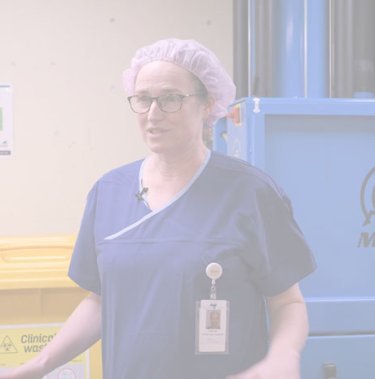
Hospital waste management
Collaboration and communication are two strategies that can be used by hospitals to identify solutions. This entails considering more than just dumping waste at the neighborhood dump and instead considering the effects of waste processing and transportation. Hospitals need to know what is being made of the trash and where it is going. This may be accomplished by collaborating with businesses like Mil-tek, who can offer solutions and assist hospitals in making decisions about their waste management that are well-informed.
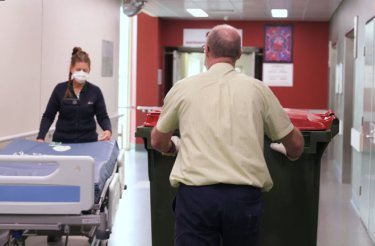
Using a baler in place of a bin
As an alternative to using cardboard bins, trash can be reduced by baling it. Baling makes it possible to keep more waste in one location and can be retrieved at no cost or at very low cost, which can help hospitals save money. The funds can then be utilized to fund sustainability initiatives.

Video: Waste management and the supply chain
The training institution at the center of this conversation has a lofty goal to eliminate all waste and carbon emissions by 2030. Sustainability plays a significant role in their primary business, which is focused on patient care and the development of healthy individuals and communities. In order to be more sustainable, the facility is employing a two-pronged strategy, considering both supply chain procurement and trash management.

Sustainable development
Working with equipment vendors like Mil-tek has been essential for making decisions and preparing for the future of the sustainability journey. Starting with the “low hanging fruit” opportunities, like reusing their Kimguard sterile wrap, is what the facility is doing. Waste management has been a significant problem because only one plant produces 20 tons of this stuff. The factory is currently bailing the Kimguard into smaller, easier-to-transport volumes.
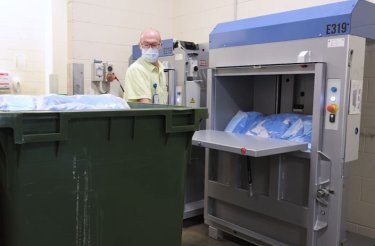
Recycling initiatives and the life cycle
The operation also diverts 100,000 infant bottles and collects hard plastics and metals from their premises in addition to recycling Kimguard. The objective is to start a movement in the healthcare industry that will set the standard for engagement and sustainability. In order to reuse recycled materials in the hospital setting as new park benches and floor tiles, the facility is examining the full life cycle of its recycling initiatives. The facility still has a ways to go before achieving its objective, but it is confident in its path.
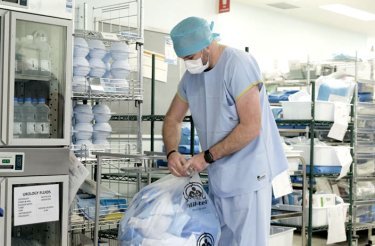
Do you have more questions?
To discover more about how Mil-tek may help your company handle trash more effectively and save time, space, and money, contact us right away.
Find out more about a product or talk to one of our representatives in your area. Tell us what you need so we can put you in touch with the appropriate person.
